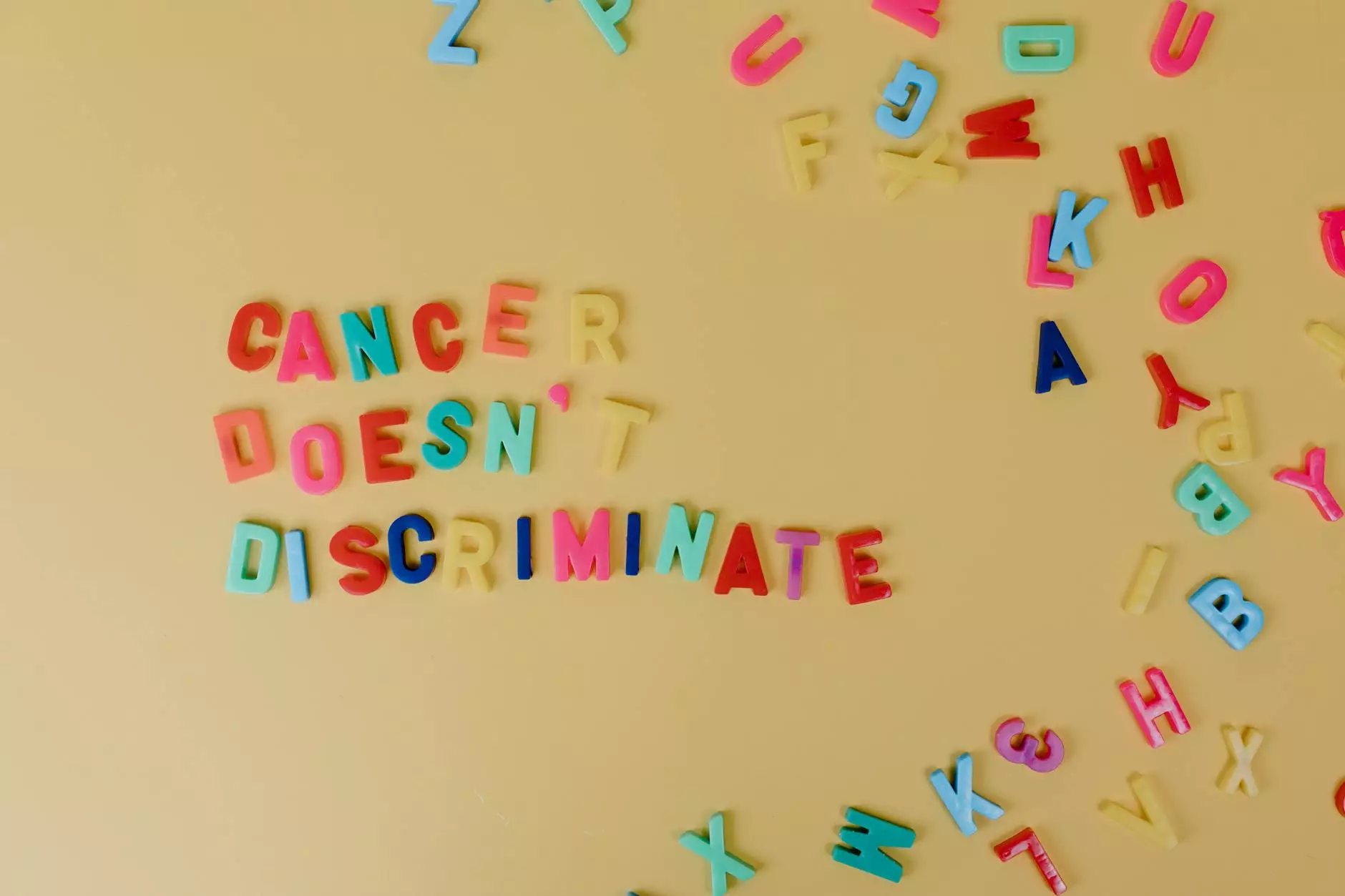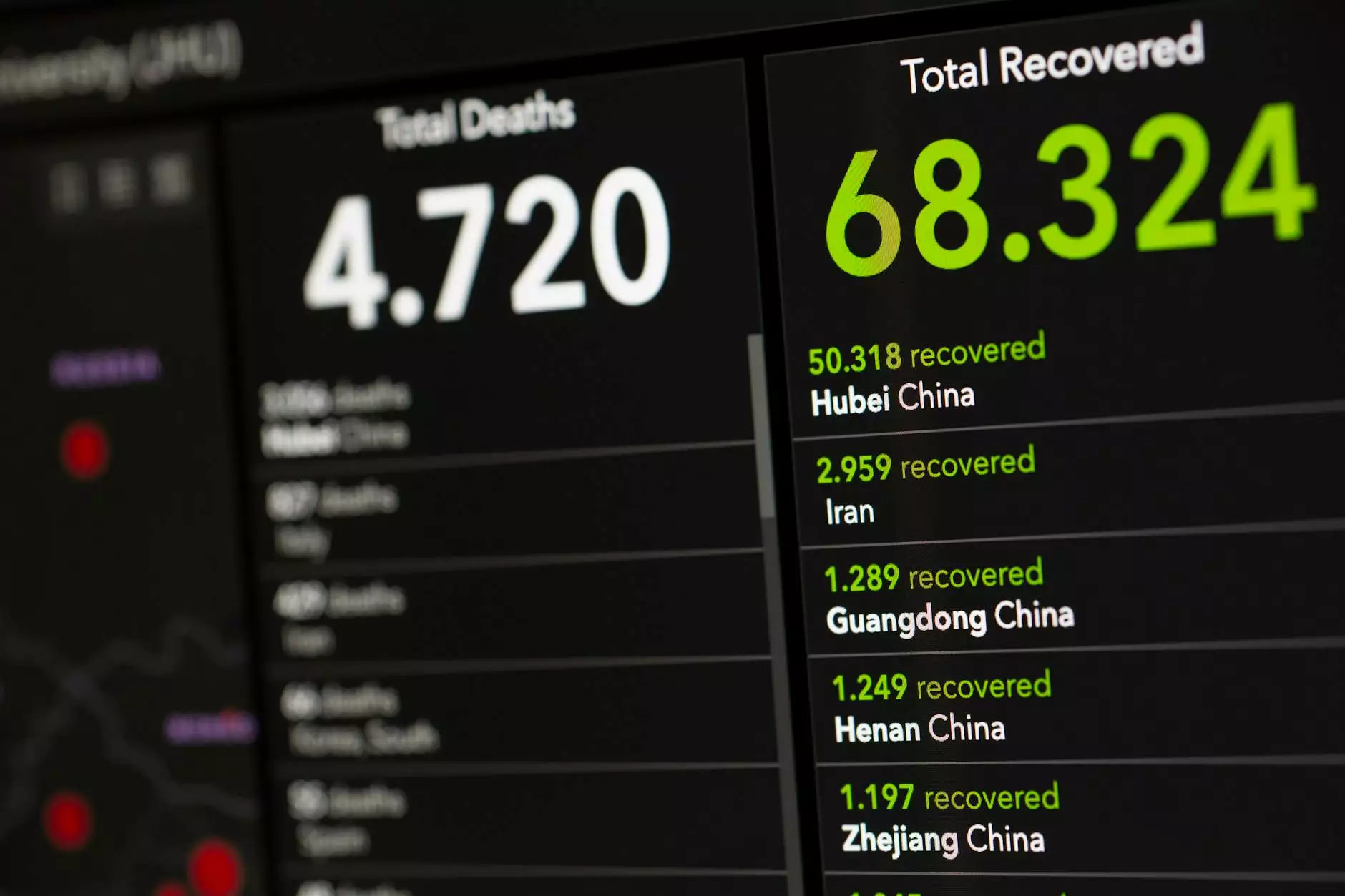Understanding the Role of a Stomach Cancer Specialist

Stomach cancer, also known as gastric cancer, is a significant health concern worldwide. With numerous advances in medical science and technology, the role of a stomach cancer specialist has evolved, leading to better outcomes for patients. In this article, we will delve into the responsibilities, treatment options, and importance of these specialists in the healthcare system.
The Importance of Early Diagnosis
One of the key responsibilities of a stomach cancer specialist is to ensure early diagnosis. Early detection is crucial as it significantly improves the prognosis for patients. Symptoms of stomach cancer can be vague and might include:
- Persistent stomach pain
- Unexplained weight loss
- Nausea and vomiting
- Difficulty swallowing
- Fatigue
- Loss of appetite
A skilled stomach cancer specialist will employ various diagnostic tools, including:
- Endoscopy
- Biopsies
- Imaging studies (such as CT or MRI scans)
- Blood tests to check for specific markers
These professionals are trained to recognize the subtle signs and symptoms of gastric cancer, enabling them to initiate treatment as soon as possible.
Understanding Stomach Cancer
Stomach cancer can arise from different areas of the stomach and may involve various subs types, including:
- Adenocarcinoma (the most common type)
- Gastrointestinal stromal tumors (GISTs)
- Lymphoma
- Carcinoid tumors
Each type presents unique characteristics and requires tailored treatment plans. A stomach cancer specialist understands these differences and can provide the most effective care possible.
Comprehensive Treatment Options
The treatment of stomach cancer is multifaceted and can include:
Surgery
Surgery is often used for early-stage stomach cancer. The goal of surgical intervention is to remove the tumor and surrounding tissue. There are different types of procedures:
- Partial Gastrectomy: Removal of a portion of the stomach.
- Total Gastrectomy: Complete removal of the stomach.
A stomach cancer specialist will evaluate the cancer's stage and location before recommending the best surgical approach.
Chemotherapy
Chemotherapy employs powerful drugs to kill cancer cells or stop their growth. It can be administered before surgery (neoadjuvant therapy) to shrink tumors or after surgery (adjuvant therapy) to eliminate any remaining cancer cells.
Radiation Therapy
Radiation therapy uses high-energy particles or waves to destroy or damage cancer cells. It is often used in conjunction with surgery and chemotherapy to improve treatment efficacy.
Targeted Therapy and Immunotherapy
Advances in cancer treatment have led to the development of targeted therapies and immunotherapies. These treatments focus on specific aspects of cancer cells or boost the body's immune response:
- Targeted Therapy: Aims at specific pathways crucial to cancer growth.
- Immunotherapy: Helps the immune system recognize and attack cancer cells.
A stomach cancer specialist stays updated on these innovations, providing patients with access to cutting-edge treatment options.
Patient-Centered Care
In addition to medical treatment, a comprehensive approach to care is essential. This involves support in various forms:
Emotional and Psychological Support
A diagnosis of cancer can be overwhelming. Stomach cancer specialists often work with mental health professionals to provide counseling and support services. This integrated care helps patients cope with anxiety, depression, and the emotional toll of cancer.
Nutrition and Lifestyle Guidance
Nutrition plays a vital role in recovery. A stomach cancer specialist may work with nutritionists to design meal plans that suit the patient’s condition and enhance healing. Additionally, lifestyle modifications, such as exercise and reducing alcohol and tobacco use, are encouraged.
Holistic and Complementary Therapies
Many patients benefit from complementary therapies such as:
- Acupuncture
- Meditation
- Yoga
- Aromatherapy
These therapies can alleviate symptoms and improve overall well-being. A stomach cancer specialist can suggest appropriate therapies that work alongside conventional treatments.
Living with Stomach Cancer
Patients diagnosed with stomach cancer often have a myriad of questions and concerns about their journey. A proficient stomach cancer specialist can provide enough information and reassurance about:
Follow-Up Care
Regular follow-up visits are essential for monitoring recovery and keeping an eye on any signs of recurrence. This next phase of care is equally crucial and involves:
- Regular imaging studies
- Blood tests to monitor health
- Continued emotional support
Support Groups
Interaction with others in similar situations can significantly benefit patients. Support groups provide a platform for sharing experiences, advice, and mutual encouragement. Specialists often recommend reputable support groups.
Innovative Research and Clinical Trials
The field of oncology is constantly evolving, with ongoing research exploring new treatment modalities, methodologies, and patient management strategies. A stomach cancer specialist is typically involved in or aware of the latest clinical trials and research studies that may benefit patients. These trials often explore:
- New drugs and therapies
- Combination treatment strategies
- Genomic profiling of tumors
Participation in a clinical trial can provide access to innovative treatments not widely available and can contribute to the advancement of cancer treatment knowledge.
The Path to Recovery
Embarking on the journey to treat stomach cancer can be daunting. However, the expertise of a dedicated stomach cancer specialist can transform the patient experience. With their knowledge, commitment to patient-centered care, and embrace of innovation, they empower patients through:
- Making informed decisions about treatment options
- Understanding their condition and what to expect
- Fostering a supportive environment for healing
Conclusion: The Essential Role of Stomach Cancer Specialists
In conclusion, the role of a stomach cancer specialist extends beyond the clinic. They are integral to the multidisciplinary approach required for effective cancer treatment. Through early diagnosis, advanced treatments, and holistic care, these specialists work towards not just improving survival rates but also enhancing the quality of life for patients. As research progresses and treatment modalities continue to evolve, patients can find hope and support in their journey.
For more information on stomach cancer treatment and to connect with a qualified stomach cancer specialist, visit oncologicalsurgery.net.









